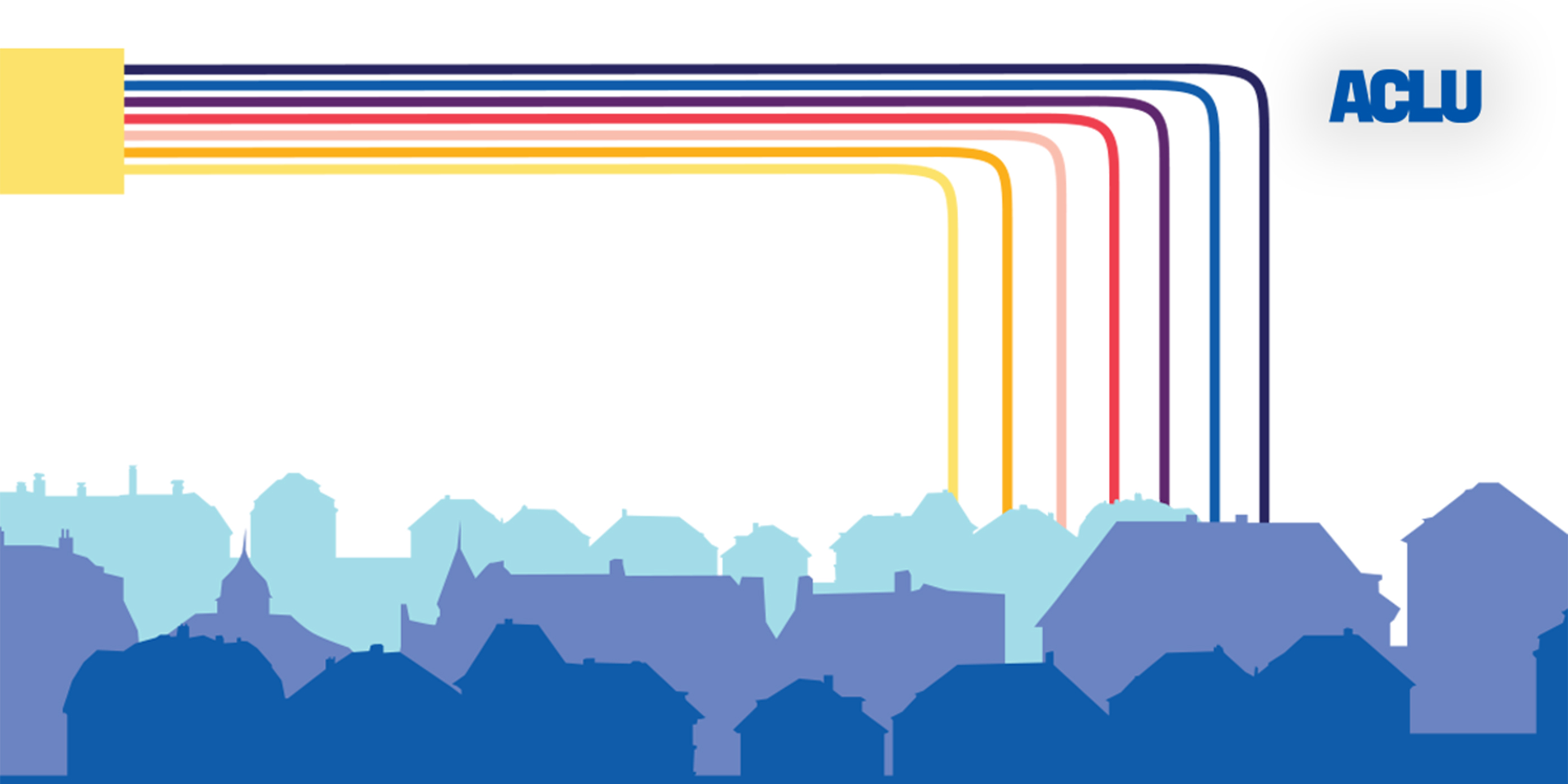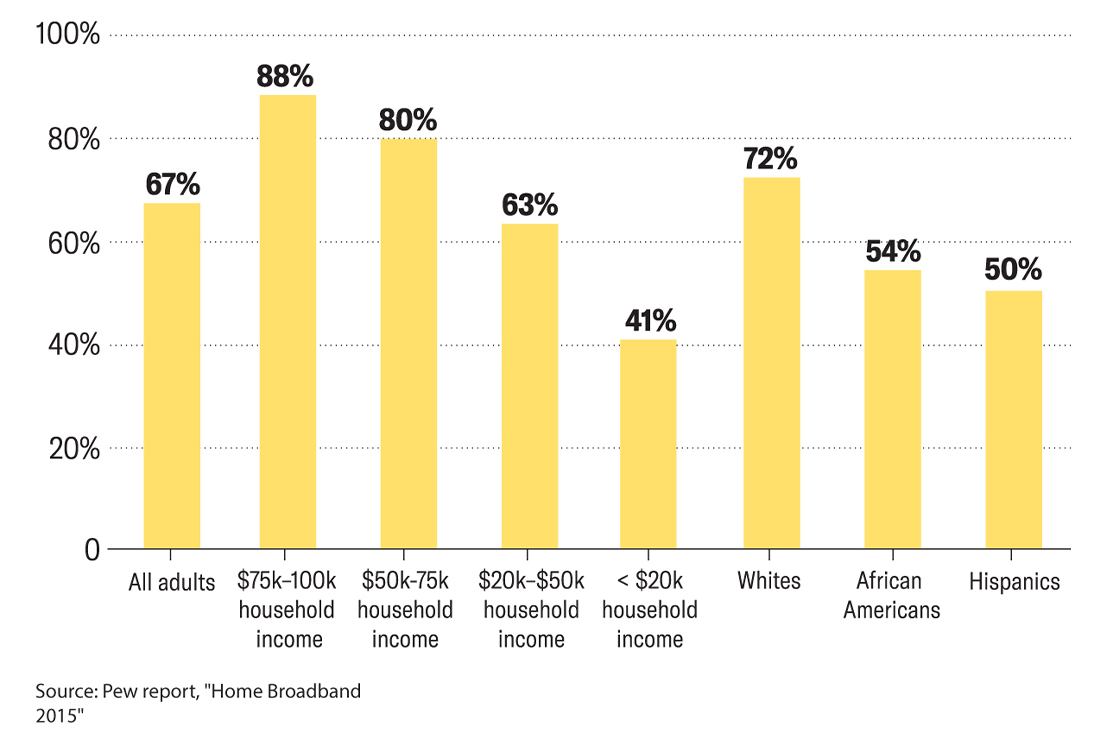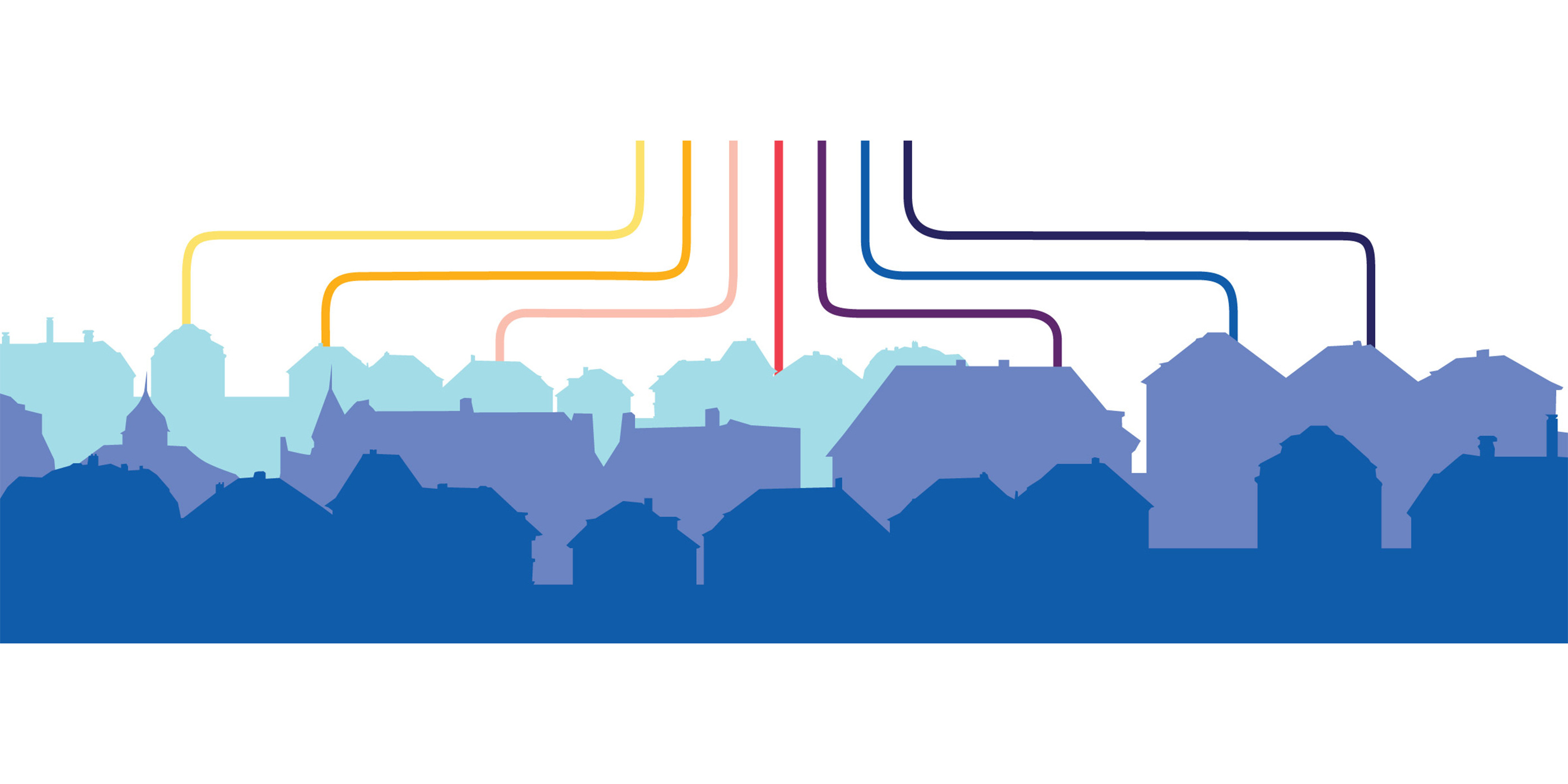
The Public Internet Option
As the Federal Communications Commission in the Trump era dismantles vital rules protecting net neutrality and users’ privacy, Americans need an internet provider that they can trust and is accountable to the public, not profits. Municipal governments can provide this by offering broadband service themselves and implementing the net neutrality and privacy protections that are no longer required of private companies by federal policies.
The internet has become a crucial utility, yet unlike water and electricity, quality broadband service in the U.S. is far from universal. Twenty-four million Americans don’t have access to high-speed internet at home, either because it’s not available or too expensive. Lack of access to decent broadband is especially bad in low-income or rural areas and communities of color. In general, there’s very little competition in this market, with most people having only one or two choices of an internet service provider. As a result, internet service in the United States is slow compared to many other countries.
Percent of U.S. Households with Broadband at Home

Hundreds of cities, towns, and counties around the country have already turned to community broadband, often providing faster and cheaper service than for-profit telecoms. And, municipally-owned broadband providers can honor net neutrality and privacy values, regardless of what the FCC does or doesn’t do. With these public systems, communities can ensure that internet service is provided in an equitable way.

In offering public broadband service, local governments need to make sure that access is consistent with free speech values and respects net neutrality principles. That means enacting strict anti-censorship rules and establishing clear oversight processes to enforce these principles.
Municipal systems should be built to serve all residents equally, regardless of a neighborhood’s income or racial make-up. Public Wi-Fi services, which can help increase internet accessibility, should be as open as possible, without requiring accounts, logins, or complex sign-up procedures. Wired customers should also be allowed to run open-access points that anyone can use.
Steps you can take to bring community broadband to your area
Internet service provided by local government can bring many advantages, but it’s not something that can be done overnight. What can you do as a citizen or activist to bring community broadband to your area?
Public broadband systems will need effective security measures and strong privacy policies. This means providing clear and meaningful notice about any data collection, requiring that collected data be made anonymous, and notifying users of any law enforcement requests for their data, which would only be given to police with a warrant.
It’s crucial that as local governments respond to consumer demand for fair and equitable internet access, they take care to respect constitutional values of free speech and privacy.


Free Speech
Public Broadband Can Help Protect the Open Internet and Close the Digital Divide

Privacy & Technology
Free Speech
ACLU Report Urges Cities and Towns to Provide Internet Service as a Utility

Free Speech
Privacy & Technology